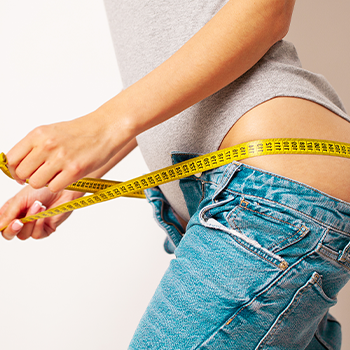Contrary to popular opinion, consuming more proteins than you need can cause constipation or worsen kidney issues.
You must consume the right amount of protein to build muscle. But with different sources, tips, and calculations, people are confused about how much protein they need.
You can get your protein needs from high-quality animal-based and plant-based protein and protein powders.
I spent weeks reading various published journals and clinical studies and consulted a certified dietitian on adequate protein intake to build muscle.
In this article, I will share how to calculate your body's protein needs and get enough protein.
Quick Summary
- To optimize muscle growth, it's essential to consume the right amount of protein, focusing on both quantity and quality from various sources.
- Protein aids in weight loss by suppressing appetite and increasing metabolic rate, making it a key component in dieting.
- Protein intake of 1.6-1.7 grams per kilogram of body weight is ideal for maintaining lean mass in strength training enthusiasts.
- Personally, I've found that combining a high-protein diet with regular strength training and sufficient rest is the most effective strategy for muscle growth.
What Is Protein And Why Is It Important?

Proteins are macronutrients and the main building blocks of our body. They’re made up of amino acids linked together, forming long-chain proteins that fold into a complex shape.
The amino acids that make up a protein determine its role in the body. Proteins are commonly known for repairing body tissues and building muscle mass, but they provide more than that.
Here are some of its functions:
- Provides more energy [1].
- Allow chemical reactions to take place (e.g., digestive enzymes) [2].
- Send messages in the body (e.g., hormones like insulin) [3].
- Provide structure (e.g., keratin, collagen, and elastin) [4,5].
Now, here's how they help you achieve your body composition goals.
Aids in Losing Weight

In my coaching career, I've observed that consuming protein can help you lose weight because it helps suppress appetite and boost your metabolic rate.
In one study, subjects were exposed to different diets:
- A diet rich in protein
- High-fat diet
- A diet high in carbohydrates
It turned out that men felt less hungry with a high protein diet than the other two diets, according to the study published in PubMed [6].
Evidence shows that protein intake can help you feel full by reducing the levels of hunger hormone Ghrelin in our body and increasing levels of peptide YY [7,8].
In short, consuming protein can help you eat less without intentionally limiting yourself and thus prevent you from overeating.
It has also been shown to increase energy consumption, which leads to higher calorie burning, based on the research published in PubMed [9].
One study shows that increasing daily protein intake for about 15% to 18% helps reduce the number of weight people regain by 50% [10].
Encourages Muscle Growth
Through my personal training sessions, I've found that adequate protein intake is crucial for muscle growth, as it provides amino acids for muscle protein synthesis (MPS) – a process vital for repairing muscle damage from intense exercise.
This exercise causes micro-tears in muscles, triggering muscle protein breakdown (MPB). The amino acids from dietary proteins are then used to repair and build new muscle tissue.
"Those who are new to exercise have a unique ability to lose body fat while also building muscle. However, for those who are advanced or looking to gain muscle mass as quickly as possible, eating more calories than you burn in any given day will be important for a while during your muscle-building phase."
- Tara Allen, Registered Nurse, Certified Health Coach, Nutrition Coach and Personal Trainer
Simply repairing muscle tissue doesn't guarantee muscle growth. For growth, muscle protein synthesis (MPS) must exceed muscle protein breakdown (MBP), a state known as positive nitrogen balance.
If breakdown surpasses synthesis, muscle loss happens. Thus, a higher protein intake is vital for lean mass development.
Remember, muscle growth also depends on factors like resistance training, sufficient rest, and potentially increased calorie intake.
How to Get Enough Protein?

From my experience as a coach, I emphasize to my clients that getting adequate protein for increasing muscle mass is crucial, but so is the quality of your protein sources.
So, here are the best sources of protein to include in your meals.
High-Protein Foods
Foods high in protein include:
- Lean meat, fish, eggs, whey protein, and dairy products have all the essential amino acids (amino acids that your body can't make), and so they are called high-quality or complete protein.
- Quinoa, soy products, and the seed of a leafy green known as amaranth (famous in Asia and the Mediterranean) are also high in protein.
- Plant sources like beans, lentils, nuts, and whole grains are considered 'incomplete' because they lack essential amino acids.
If you are currently on a plant-based diet, you can still get adequate protein by eating a variety of food sources. For example, a meal with cereals and legumes provides you with the essential amino acids found in a usual meat dish.
Related Article: Best Protein Foods for Muscle Growth
Protein Powder
If meeting your protein requirements with food is a struggle, protein powder comes in handy.
Athletes and bodybuilders often mix protein powders with water or juice as intensive physical activities require higher protein levels.
Protein powder often comes from food sources like soy which has complete protein. Having an optimal protein powder intake helps increase muscle mass and speed up the recovery process.
To optimize muscle gains, it's crucial to consider not just the quantity but also the quality of protein consumed, with a focus on high-quality sources like whey, casein, or complete amino acid profile plant-based proteins.
Calculate Your Protein Needs for Muscle Building

In my coaching practice, I advise active individuals to adjust their protein intake based on age, fitness level, and exercise intensity for optimal muscle building.
Research "Beyond the zone: protein needs of active individuals" published in PubMed suggests a minimum of 1.6-1.7 grams of protein per kilogram of body weight (0.7-0.8 grams per pound) is needed for maintaining lean mass in strength training enthusiasts [11].
While another recent study published in PubMed suggests taking as high as 1.8-2.0 grams of protein per kilogram of body weight (0.8-0.9 grams for every pound of body weight) is beneficial [12].
However, a review of 49 studies found that protein consumption of more than 1.6 grams per kilogram of body weight (or 0.72 grams for every pound) is not beneficial for those trying to gain muscle [13].
Beyond muscle building, adequate protein intake plays a pivotal role in muscle recovery and injury prevention, highlighting its importance in a well-rounded fitness regimen.
What Happens When You Eat Too Much Protein?

Eating protein in high amounts is considered safe for healthy individuals, but it doesn't necessarily mean better for your well-being.
There can be minor side effects of having a high protein consumption, such as:
- Constipation
- Indigestion
- Weight gain
However, note that these minor side effects are usually caused by a high-protein meal that restricts other macros, like healthy fats and carbs.
Furthermore, consuming protein mainly from red meat can lead to risks of heart disease because they contain high amounts of saturated fat [14].
Some reports say too much protein may cause kidney problems because it increases the workload of the kidneys.
But, studies published in Nutrients show that high protein is safe for healthy adults and can only negatively affect those with decreased kidney function [15].
FAQs
Is 100 Grams of Protein Enough to Build Muscle?
An active person must aim for a protein intake of 1.2-1.7 grams per kilogram of body weight (that's 0.5-0.8 grams for every pound) daily for muscle growth, says the American College of Sports Medicine. So, on average, a 75-kilogram individual should aim for 75g-128g of protein daily.
How Much Protein Should I Be Eating to Lose Weight?
Dietary guidelines suggest that you should be eating 46–56 g or 0.8 grams of protein per kilogram of ideal body weight (optimal weight based on your height, gender, and age) daily to lose weight [16].
How Much Is Needed After a Workout?
Evidence suggests it is beneficial to consume at least 0.3-0.5 g per kilogram (or 0.14-0.23 grams per pound) of body weight after a strenuous workout [17].
References:
- https://www.ncbi.nlm.nih.gov/pmc/articles/PMC4960974/
- https://www.ncbi.nlm.nih.gov/pmc/articles/PMC4576142/
- https://www.ncbi.nlm.nih.gov/pmc/articles/PMC1204764/
- https://www.ncbi.nlm.nih.gov/pmc/articles/PMC2736122/
- https://pubs.rsc.org/en/content/articlelanding/2020/qo/d0qo00624f
- https://pubmed.ncbi.nlm.nih.gov/8862477/
- https://pubmed.ncbi.nlm.nih.gov/16469977/
- https://www.sciencedirect.com/science/article/pii/S1550413106002713
- https://pubmed.ncbi.nlm.nih.gov/19640952/
- https://pubmed.ncbi.nlm.nih.gov/14710168/
- https://pubmed.ncbi.nlm.nih.gov/11023001/
- https://pubmed.ncbi.nlm.nih.gov/22150425/
- https://www.acsm.org/docs/default-source/files-for-resource-library/protein-intake-for-optimal-muscle-maintenance.pdf
- https://www.sciencedaily.com/releases/2020/02/200203114328.htm
- https://www.ncbi.nlm.nih.gov/pmc/articles/PMC6356875/
- https://www.ncbi.nlm.nih.gov/pmc/articles/PMC8017325/#ref44
- https://pubmed.ncbi.nlm.nih.gov/18834505/
About The Author
You May Also Like






